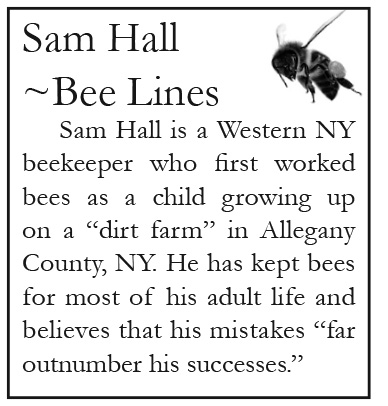Bee Lines: Double screened bottom boards
by Sam Hall –
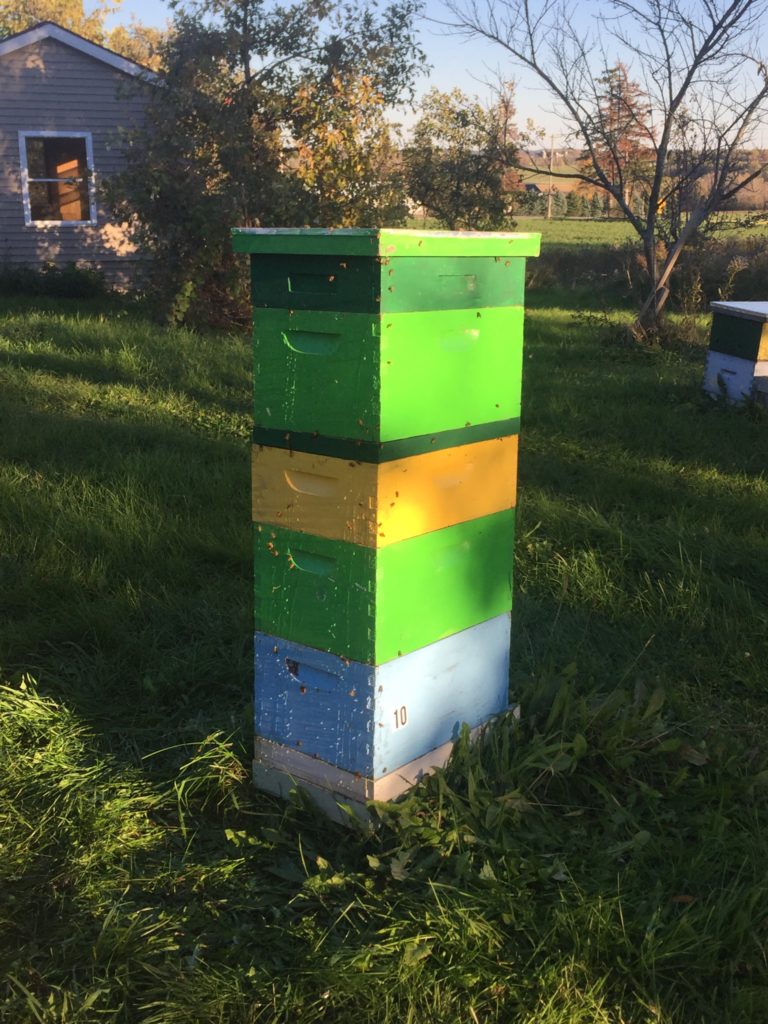
Recently I realized that I had a five frame nuc in the bee yard. It was the last one of eight that I had made up last June to use as mating nucs for the queens I was rearing. Someone was going to pick it up but never did so. On Monday November 5th I decided I had to do something or this colony would die as it could not generate enough heat to get thru the winter alone and probably would not have enough stores either.
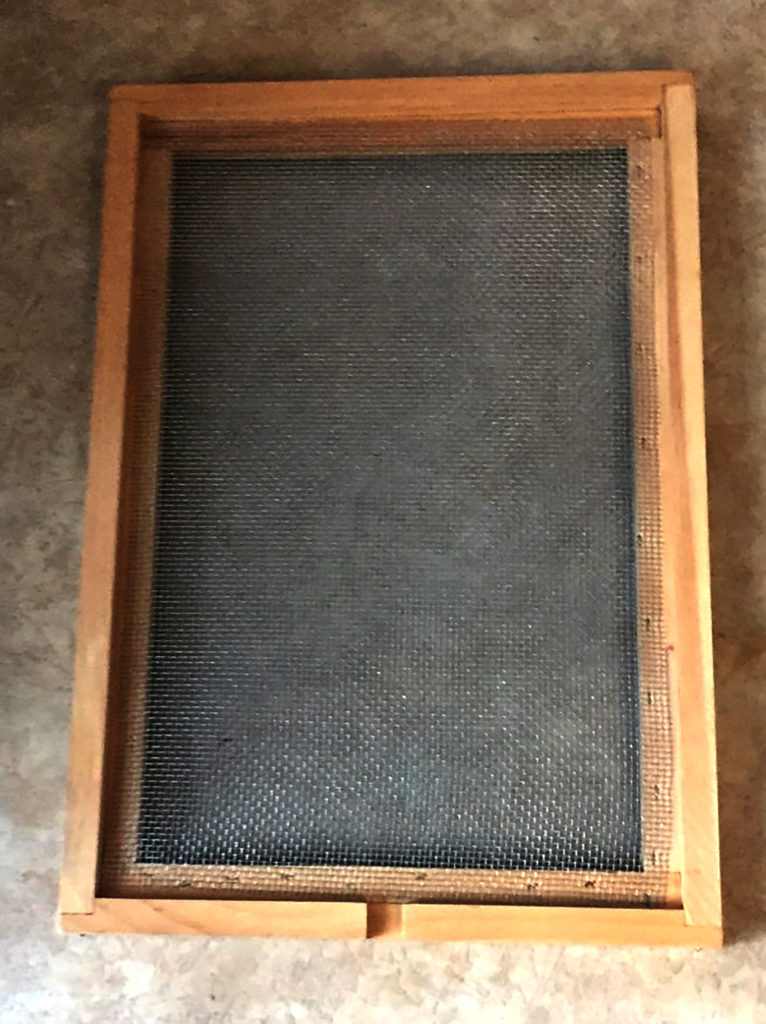 A double screen board is exactly what it says it is. It is a shim with #9 hardware cloth (screen) on both sides. I have a very strong colony #10. It’s configuration is two 8 frame deeps with a medium super on top which has some honey in it. I put the double screen board on top being sure to put the entrance opposite from the entrance for the host or bottom colony. I then put the colony from the five frame nuc into an 8 frame deep adding three frames with drawn comb. On top of this I put a top feeder which held about 6 pounds of 2:1 (sugar:water) syrup. The picture of #10 shows the double screen board above the medium honey super.
A double screen board is exactly what it says it is. It is a shim with #9 hardware cloth (screen) on both sides. I have a very strong colony #10. It’s configuration is two 8 frame deeps with a medium super on top which has some honey in it. I put the double screen board on top being sure to put the entrance opposite from the entrance for the host or bottom colony. I then put the colony from the five frame nuc into an 8 frame deep adding three frames with drawn comb. On top of this I put a top feeder which held about 6 pounds of 2:1 (sugar:water) syrup. The picture of #10 shows the double screen board above the medium honey super.
Due to the cold weather I have had to stop using the liquid syrup feeder and have gone to a candy board. I have gotten real lazy and instead of preparing a cooked recipe of
candy for the board, I simply mix a little water with 10 lbs of sugar and then put it in the candy board with winter pollen. It will set up overnight. The bees go right to it.
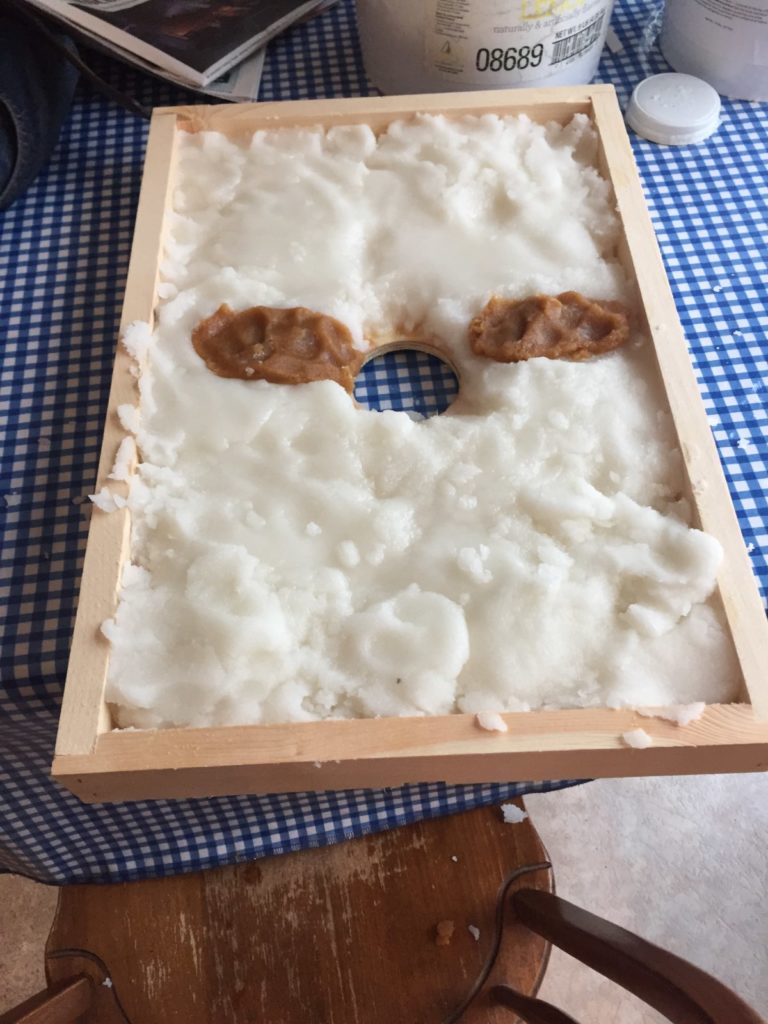
For reasons I’m not sure of I have colonies that produced supers of honey for me during the summer and fall but did not fill the frames in and around the brood nest with honey for the winter. Some did but several did not. Those are the ones that I’m now feeding or they would starve.
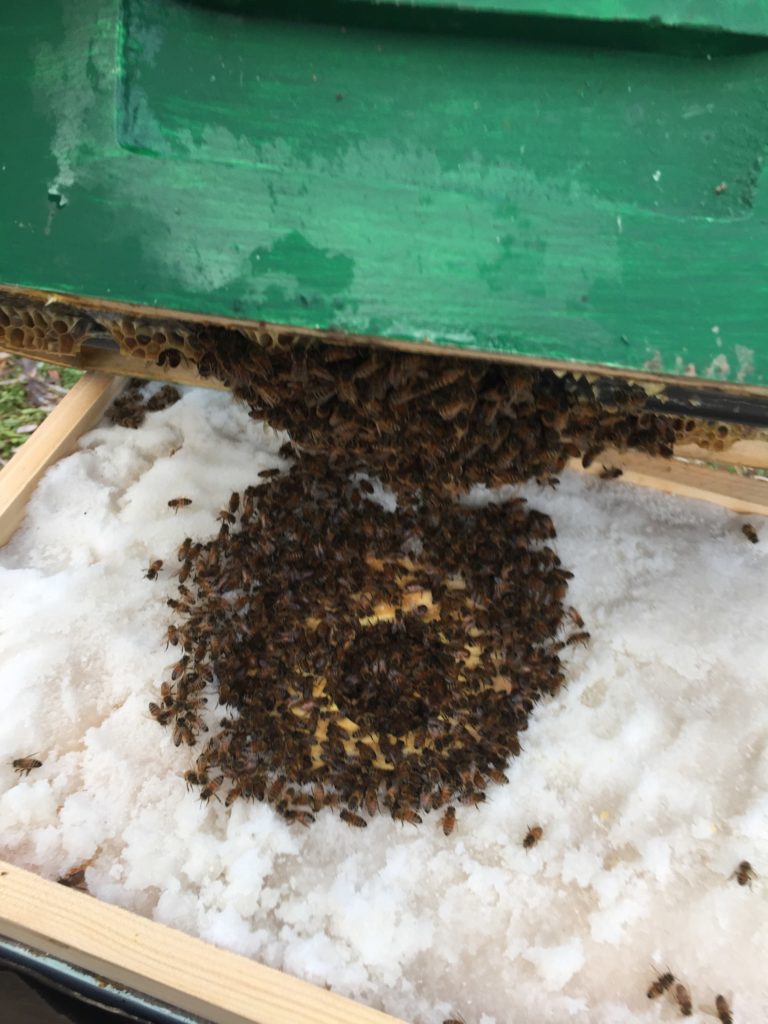
Once the candy boards are in place and they need it, the bees will move up and start feeding. I will be monitoring the candy boards throughout the winter to make sure there is a constant supply of candy and pollen.
My objective is not only to get colonies through the Western New York winter but to have colonies that are large and strong enough to be split in late April or early May. Sometimes I’m successful and sometimes not. In our modern world we are intentionally removed from direct contact with nature. Beekeeping is my connection to nature and what we could be.
